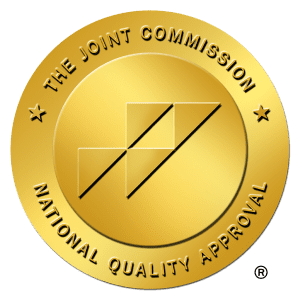
Addiction recovery is a lifelong journey that requires dedication, support, and most importantly, a well-structured relapse prevention plan. At Grata House, we understand that maintaining sobriety extends far beyond initial treatment, which is why we emphasize the critical importance of developing comprehensive relapse prevention tools that address both the psychological and practical aspects of sustained recovery.
Understanding Relapse Prevention Plans
A relapse prevention plan is a personalized plan, a written strategy that helps individuals in recovery identify potential relapse triggers, develop coping skills, and create actionable steps to maintain their sobriety. This essential relapse prevention tool serves as a roadmap for navigating challenging situations and serves as a reminder of the progress made during treatment.
Research from the National Institute on Drug Abuse indicates that relapse rates for substance use disorders are similar to those of other chronic medical conditions, ranging from 40-60%. However, individuals who actively engage with a comprehensive relapse prevention plan significantly improve their chances of maintaining long-term sobriety.
Core Components of an Effective Relapse Prevention Plan
Identifying Personal Triggers
The foundation of any successful relapse prevention plan begins with recognizing your unique triggers. These can be categorized into several types:
- Environmental Triggers include specific locations, situations, or circumstances that may prompt cravings. These might encompass certain neighborhoods, social gatherings where substance abuse is present, or even particular times of day when substance use previously occurred.
- Emotional Triggers involve specific feelings or emotional states that historically led to addictive behaviours. Common emotional triggers include stress, anxiety, depression, loneliness, anger, or even positive emotions like celebration that were previously associated with substance use. Understanding your personal warning signs of emotional turmoil is crucial for early intervention.
- Social Triggers encompass relationships and social situations that may compromise recovery. This includes spending time with former using companions, family conflicts, or social pressure to engage in substance use. Recognizing how habit forming patterns develop in social contexts is essential.
- Physical Triggers involve bodily sensations or health conditions that might increase vulnerability to relapse, such as chronic pain, fatigue, or other medical conditions that were previously self-medicated with substances. Understanding how developmental trauma impacts the body’s response to stressors is crucial for comprehensive trigger identification.
Developing Healthy Coping Strategies
Once triggers are identified, the next crucial step involves developing healthy alternatives to substance use. Effective coping tools should be diverse and address various aspects of well-being:
- Stress Management Techniques form the cornerstone of effective coping skills. These may include deep breathing exercises, progressive muscle relaxation, meditation, or mindfulness exercises. The American Psychological Association emphasizes that stress management skills are among the most valuable tools for preventing relapse.
- Physical Wellness Activities play a vital role in maintaining both physical and mental health during recovery. Regular physical exercise, proper nutrition, adequate sleep, and engaging in recreational activities that promote physical well-being can significantly reduce the risk of relapse while improving overall quality of life.
- Creative and Expressive Outlets provide healthy ways to process emotions and experiences. These might include journaling, art therapy, music, or other creative pursuits that offer constructive ways to express feelings and thoughts without resorting to substance use.
- Mindfulness and Spiritual Practices can provide grounding and perspective during challenging times. Whether through mindfulness-based techniques, prayer, yoga, or other spiritual practices, these activities can offer comfort and strength when facing potential triggers. Mindfulness-based cognitive therapy has shown particular effectiveness in addiction recovery.
Building and Maintaining Support Networks
Recovery rarely happens in isolation, and building robust support networks is essential for long-term success. A comprehensive relapse prevention plan should include multiple layers of support:
- Professional Support includes ongoing relationships with therapists, counselors, physicians, and other healthcare providers who understand your recovery journey and can provide guidance during challenging times. Clinical case management can be particularly valuable in coordinating care and maintaining accountability. A substance abuse counselor can provide specialized expertise in behavioral health and addiction recovery.
- Peer Support through 12-step programs like Alcoholics Anonymous, SMART Recovery, or other peer-led support groups provides connection with others who understand the challenges of recovery firsthand.
- Family and Friends who support your recovery can provide emotional support, accountability, and practical assistance when needed. However, it’s important to establish clear boundaries and communication strategies with loved ones as part of your relapse prevention plan. Family and aftercare integration plays a crucial role in long-term success. Family therapy and family counseling can address relationship dynamics that may impact recovery.
Recovery Community involvement through sober social activities, volunteer opportunities, or recovery-focused events can help build new, healthy relationships while reinforcing your commitment to sobriety.

The Three Stages of Relapse Prevention
Understanding that relapse is often a process rather than a single event is crucial for effective prevention. Researchers have identified three distinct stages of relapse, each requiring different intervention strategies:
Emotional Relapse
During emotional relapse, individuals are not actively thinking about using substances, but their emotions and behaviors are setting them up for potential relapse. Warning signs include isolating from others, not attending support meetings, poor eating or sleeping habits, and experiencing anxiety or mood swings without addressing them appropriately.
Prevention strategies for emotional relapse focus on self-regulation, stress management, and maintaining healthy routines. This includes prioritizing sleep, nutrition, physical exercise, and continuing to engage with support systems even when motivation is low. Daily check-ins with accountability partners can provide valuable monitoring during this vulnerable stage.
Mental Relapse
Mental relapse involves an internal struggle between the desire to use substances and the commitment to recovery. Individuals may begin thinking about people, places, or situations associated with past substance use, glamorizing past use, or planning potential relapse scenarios. This stage requires immediate attention to coping with cravings and addressing the cue/reminder patterns that emerge.
Intervention during mental relapse requires immediate action, including reaching out to support systems, engaging in healthy distractions, reviewing the consequences of past substance use, and potentially seeking professional help to work through these thoughts and urges. Self-help strategies and self-awareness become critical during this phase.
Physical Relapse
Physical relapse occurs when an individual actually uses substances. However, understanding that this stage can be brief and doesn’t negate all progress made in recovery is important. The goal is to minimize the duration and impact of any physical relapse and quickly return to recovery-focused behaviors.
Response to physical relapse should include immediate safety measures, recognizing overdose signs if applicable, honest communication with support systems, and rapid re-engagement with treatment or support services as needed. Having naloxone available and understanding overdose prevention can be lifesaving during this critical time.
Creating Your Personal Action Plan
An effective relapse prevention plan includes specific, actionable steps for various scenarios. Your personalized plan should address:
- Daily Maintenance Activities that support ongoing recovery, including morning routines, regular check-ins with support systems, and evening reflection practices that reinforce your commitment to sobriety. These activities should be self-paced and sustainable for long-term implementation.
- Weekly and Monthly Goals that provide structure and purpose, such as attending a certain number of therapy sessions, engaging in physical exercise, or pursuing educational or career objectives that support your recovery.
- Emergency Contacts and Procedures including a list of people to call during an emotional crisis, steps to take when experiencing strong cravings, and resources available during off-hours or weekends when regular support may not be immediately accessible. Consider utilizing text messaging or mobile apps for immediate support access.
- Accountability Measures such as regular check-ins with sponsors, therapists, or trusted friends who can provide honest feedback about your recovery progress and help identify potential warning signs before they become serious problems. This monitoring system can provide both support and reward for maintaining recovery goals.
Warning Signs and Red Flags
Recognizing early warning signs of potential relapse allows for immediate intervention before the situation escalates. Common warning signs include:
- Changes in attitude toward recovery, such as expressing doubt about the necessity of sobriety, romanticizing past substance use, or becoming increasingly resistant to feedback from others about concerning behaviors.
- Social isolation or withdrawal from support systems, including missing meetings, avoiding calls from supportive friends or family members, or declining invitations to recovery-focused social activities.
- Neglecting self-care routines, such as poor hygiene, irregular eating or sleeping patterns, or abandoning previously enjoyable activities that supported recovery.
- Increased stress or emotional volatility without appropriate coping responses, including expressing feeling overwhelmed, increased irritability, or anxiety without utilizing previously effective coping strategies.
The Role of Professional Support in Relapse Prevention
While peer support and self-help strategies are crucial components of relapse prevention, professional guidance provides specialized expertise that can significantly enhance your plan’s effectiveness. Mental health professionals, addiction counselors, and medical providers can offer:
- Personalized Assessment of your specific risk factors, strengths, and areas needing additional support, ensuring your relapse prevention plan addresses your unique circumstances and needs. This treatment matching approach ensures the most effective interventions for each patient.
- Evidence-Based Interventions such as Cognitive Behavioral Therapy, Dialectical Behavior Therapy, Motivational interviewing, Contingency management, or trauma-informed approaches that address underlying issues contributing to addiction and provide proven strategies for maintaining recovery.
- Medication Management when appropriate, including medications that can reduce cravings, address co-occurring mental illness, or provide medical support for sustained recovery. Medication Assisted Treatment has proven particularly effective for certain substance use disorders. Medications such as Methadone, Buprenorphine, Naltrexone, and Disulfiram may be appropriate depending on the specific substance and individual needs. For those dealing with alcohol abuse, specific medications can significantly reduce cravings and support recovery goals.
- Crisis Intervention and intensive support during high-risk periods, ensuring you have access to professional help when personal and peer support systems may not be sufficient. This may include inpatient rehab or intensive outpatient program options when needed. Local treatment facilities and a treatment referral routing service can provide immediate access to appropriate care levels. Getting help sooner rather than later is crucial during crisis situations.
Integrating Trauma-Informed Approaches
Many individuals in recovery have experienced trauma that contributes to their substance use patterns. A comprehensive relapse prevention plan should address these underlying trauma-related factors through:
- Body-Based Healing techniques that address how trauma is stored in the body and provide somatic approaches to healing that complement traditional talk therapy. Holistic treatment approaches can be particularly effective in addressing these mind-body connections.
- Safety and Stabilization strategies that help individuals feel secure and grounded, reducing the likelihood of using substances to cope with trauma-related triggers or symptoms. This may include developing a Sensory Plan that utilizes grounding techniques and symptom management strategies.
Long-Term Recovery Planning
Effective relapse prevention extends beyond immediate crisis management to include long-term life planning that supports sustained recovery:
Goal Setting and Achievement in areas such as career development, education, relationships, and personal growth that provide meaning and purpose beyond recovery itself. For individuals dealing with specific substance challenges, understanding the unique aspects of recovery from substances like fentanyl, alcohol, or nicotine can inform more targeted planning. Each substance requires different supporting concepts and approaches to long-term recovery.
- Lifestyle Design that incorporates recovery-supportive activities, relationships, and environments while gradually expanding your comfort zone and life experiences in healthy ways. Experiential therapies can provide innovative approaches to building new, healthy lifestyle patterns.
- Ongoing Education about addiction, recovery, and personal development that helps you understand your condition and continue growing in your recovery journey. This includes learning about recidivism patterns and how to break cycles of addictive behaviours.
- Service and Contribution opportunities that allow you to give back to others in recovery while reinforcing your own commitment to sobriety and building self-esteem through helping others. Many find meaning in working with correctional agencies or outpatient substance abuse treatment programs as peer counselors.
Adapting Your Plan Over Time
Recovery is a dynamic process, and your relapse prevention plan should evolve as you grow and change. Regular review and updates ensure your plan remains relevant and effective:
- Quarterly Reviews of your plan’s effectiveness, including honest assessment of which strategies are working well and which may need modification or replacement. These reviews should be filled out thoroughly with your treatment team for comprehensive evaluation.
- Life Transition Planning for major changes such as new relationships, career changes, relocations, or other significant life events that may require adjustments to your prevention strategies. Transitions often require additional counseling support and emotional support.
- Seasonal Adjustments that account for times of year, holidays, or anniversaries that may present unique challenges requiring additional support or modified approaches.
- Progress Celebration and acknowledgment of milestones achieved, which reinforces positive changes and motivates continued commitment to recovery.
Technology and Recovery Tools
Modern technology offers numerous tools that can enhance your relapse prevention plan while maintaining privacy:
- Recovery Apps that provide daily meditation, craving management tools, meeting locators, and progress tracking features that support your ongoing recovery efforts. Many apps offer text notifications and reminders to help maintain accountability.
- Telemedicine Options that provide access to professional support regardless of location or schedule constraints, ensuring continuity of care even during challenging circumstances. This includes access to medical detoxification consultations when needed.
- Online Support Communities that offer 24/7 connection with others in recovery, providing support and accountability outside of traditional meeting times and locations.
- Digital Wellness Tracking tools that help monitor sleep, exercise, mood, and other factors that influence recovery, providing data to help you understand patterns and make informed decisions about your self-care.
Family and Relationship Considerations
Recovery affects not only the individual but also their relationships and family dynamics. A comprehensive relapse prevention plan should address:
- Communication Strategies for discussing your needs, boundaries, and recovery goals with family members and friends in ways that promote understanding and support.
- Boundary Setting with relationships that may not support your recovery, including strategies for limiting contact with individuals who continue to use substances or engage in behaviors that compromise your sobriety.
- Relationship Repair approaches for addressing damage caused during active addiction while maintaining realistic expectations about the time and effort required to rebuild trust and intimacy. For those dealing with dual diagnosis situations, additional considerations around mental health and relationships become important.
- New Relationship Guidelines for forming healthy connections with others while in recovery, including considerations about timing, disclosure, and maintaining your recovery priorities.
Moving Forward with Confidence
Creating and implementing a comprehensive relapse prevention plan is one of the most important investments you can make in your recovery journey. Remember that this plan is a living document that should grow and evolve with you as you progress in your recovery.
At Grata House, we understand that each person’s path to recovery is unique, and we’re committed to helping you develop personalized strategies that address your specific needs, challenges, and goals. Our trauma-informed approach recognizes that lasting recovery often requires addressing underlying issues that contribute to substance use patterns.
Your relapse prevention plan is more than just a safety net—it’s a roadmap to the life you want to create in recovery. By identifying your triggers, developing healthy coping strategies, building strong support networks, and remaining committed to ongoing growth and learning, you’re taking powerful steps toward sustained sobriety and personal fulfillment.
Recovery is not just about avoiding substances; it’s about creating a rich, meaningful life that supports your highest aspirations and deepest values. Your relapse prevention plan serves as the foundation for this transformation, providing the structure and support needed to navigate challenges while pursuing your dreams and goals.
Remember that seeking help is a sign of strength, not weakness. Whether you’re just beginning your recovery journey or looking to strengthen your existing sobriety, professional support can provide valuable guidance, accountability, and encouragement along the way.
If you’re ready to take the next step in your recovery journey or need support in developing or updating your relapse prevention plan, we’re here to help. Contact Grata House today to learn more about our comprehensive addiction treatment programs and discover how our trauma-informed approach can support your long-term recovery success.
